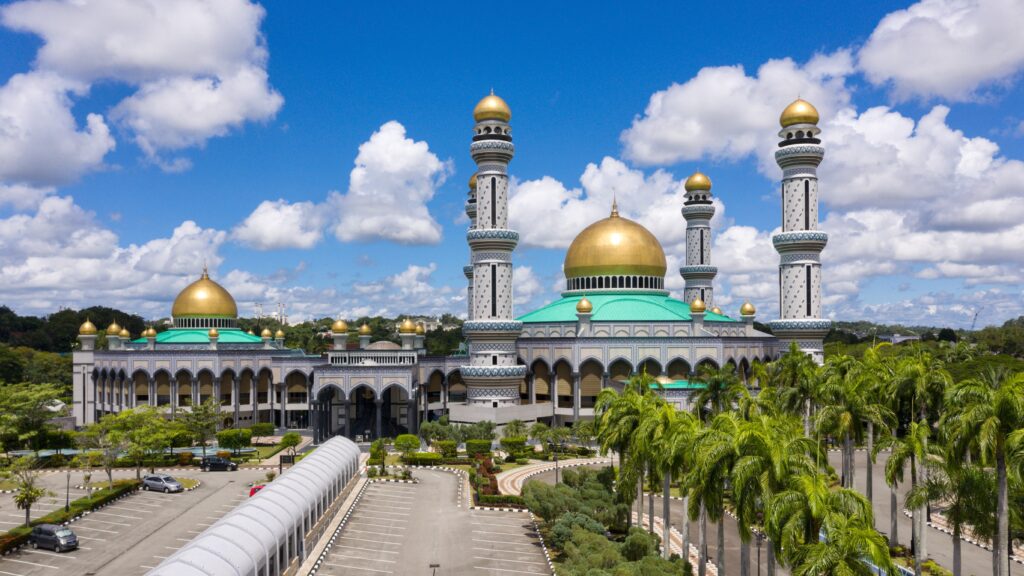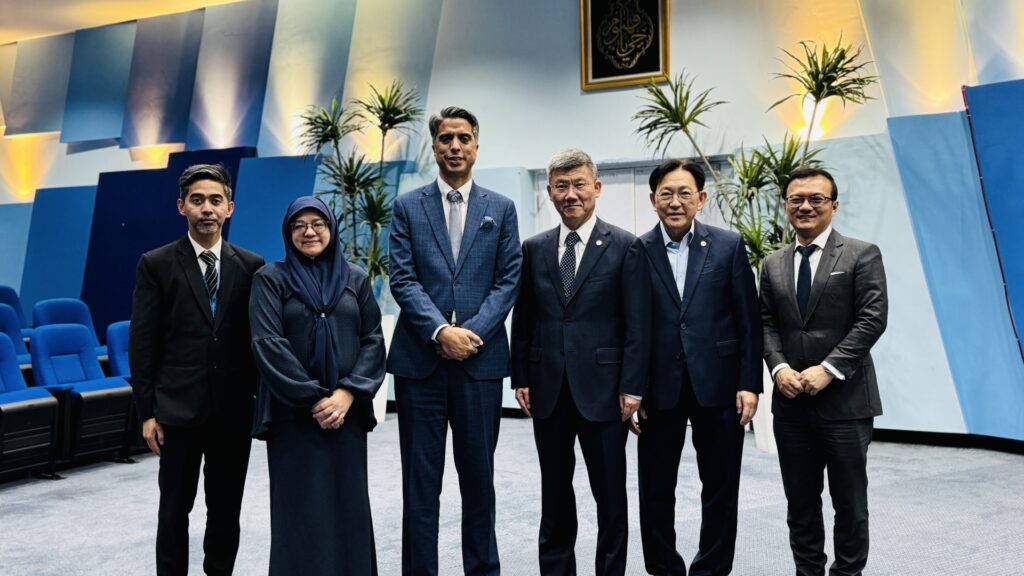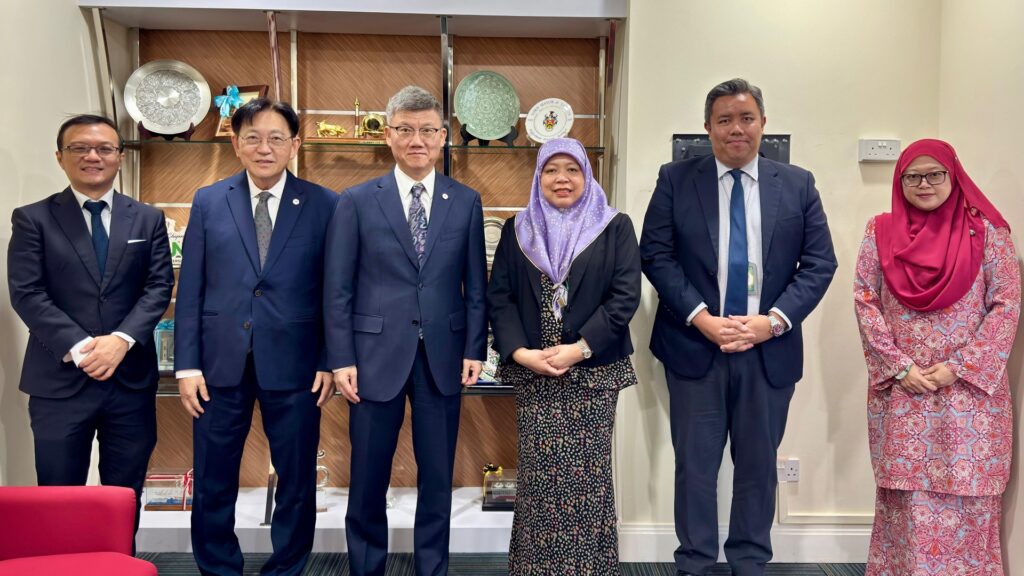
SINGAPORE, May 21, 2025—Brunei Darussalam’s post-pandemic economic recovery remains robust, supported by low inflation and a stable macroeconomic environment. The economy grew by 4.2 percent in 2024, its fastest expansion since 1999, driven mainly by a strong rebound in both upstream and downstream oil and gas (O&G) sectors. The services sector also maintained steady growth, especially in wholesale and retail trade, air transport and communications. Growth is forecast to stabilize at 2.6 percent in 2025-26. Looking ahead, the government remains committed to deepening economic diversification and aligning its development strategies with longer-term sustainability and low-carbon goals.
This preliminary assessment was made by the ASEAN+3 Macroeconomic Research Office (AMRO) after its Annual Consultation Visit to Brunei from April 17–23, 2025.
The mission was led by AMRO Deputy Group Head and Principal Economist Anthony Tan, with AMRO Director Kouqing Li and Chief Economist Hoe Ee Khor also participating in policy discussions. Topics included recent economic developments and outlook, spillover risks such as rising US trade protectionism, and Brunei’s longer-term development priorities.
Economic developments and outlook
“Growth is forecast to stabilize at 2.6 percent for 2025–26 as upstream and downstream oil and gas production levels off following last year’s strong rebound,” said Mr. Tan. “Positive developments in the agri-food and tourism sectors will help support the near-term growth.”
Headline inflation has been declining since 2023, turning negative last year due to falling prices in transport, communication, clothing, and footwear. Inflation is expected to remain low, averaging just under 1 percent in 2025-26, reflecting lower food and energy prices.
Brunei’s external position remains strong, underpinned by a large current account surplus and ample foreign reserves. However, this surplus is expected to narrow to 12.4 percent of GDP in 2025, down from 14.5 percent in 2024, partly reflecting lower global energy prices. The continuing demand for imported services such as transport and travel is expected to widen the services account deficit, contributing to the moderation of the overall current account surplus.
The fiscal deficit is estimated to widen to 12.5 percent of GDP in the fiscal year 2024, reflecting weaker O&G revenues. With global energy prices expected to remain moderate, the fiscal deficit is projected to remain under pressure in the near term.
Risks, vulnerabilities and challenges
Risks to Brunei’s growth outlook are balanced amid high global uncertainty. Near-term risks stem from potential disruptions to O&G production, a sharper-than-expected drop in global energy prices, and a weakened demand from key trading partners. Over the longer term, challenges include potential setbacks to economic diversification due to the more uncertain global landscape, as well as the unpredictable pace of global decarbonization.
Policy recommendations
Given the volatility in O&G revenues, it is important to maintain a prudent fiscal stance. Strengthening rules-based fiscal frameworks will enhance policy credibility and support more effective fiscal planning and decision-making. Additionally, broadening the scope of fiscal data—such as producing budget accounts on a consolidated basis—will improve risk monitoring while promoting greater transparency and strengthening accountability.
In the financial sector, enhancing the monitoring of cross-border bank lending activities and strengthening the risk management framework in this area will further safeguard financial stability.
Deepening economic ties and trade integration through bilateral and regional free trade agreements can improve market access and help attract foreign direct investment, especially as global trade becomes more fragmented.
Building domestic capacity in non-O&G sectors remains key. Fostering greater labor market flexibility and competition, strengthening micro, small and medium enterprises (MSME) development, and driving digital and green innovation are key growth enablers.
AMRO extends its appreciation to the Bruneian authorities and participating organizations for their cooperation and candid exchange of views which contributed to the success of the mission.
About AMRO
The ASEAN+3 Macroeconomic Research Office (AMRO) is an international organization established to contribute toward securing macroeconomic and financial resilience and stability of the ASEAN+3 region, comprising 10 members of the Association of Southeast Asian Nations (ASEAN) and China; Hong Kong, China; Japan; and Korea. AMRO’s mandate is to conduct macroeconomic surveillance, support regional financial arrangements, and provide technical assistance to the members. In addition, AMRO also serves as a regional knowledge hub and provides support to ASEAN+3 financial cooperation.

AMRO Director Kouqing Li, Chief Economist Hoe Ee Khor, and the mission team met with Brunei Darussalam Ministry of Finance and Economy’s (MOFE) Deputy Permanent Secretary Tuan Harris Ibrahim and MOFE senior officials.

AMRO Director Kouqing Li, Chief Economist Hoe Ee Khor, and the mission team met with Brunei Darussalam Central Bank (BDCB) Managing Director Yang Mulia Dayang Hajah Rashidah binti Haji Sabtu and BDCB senior officials.
